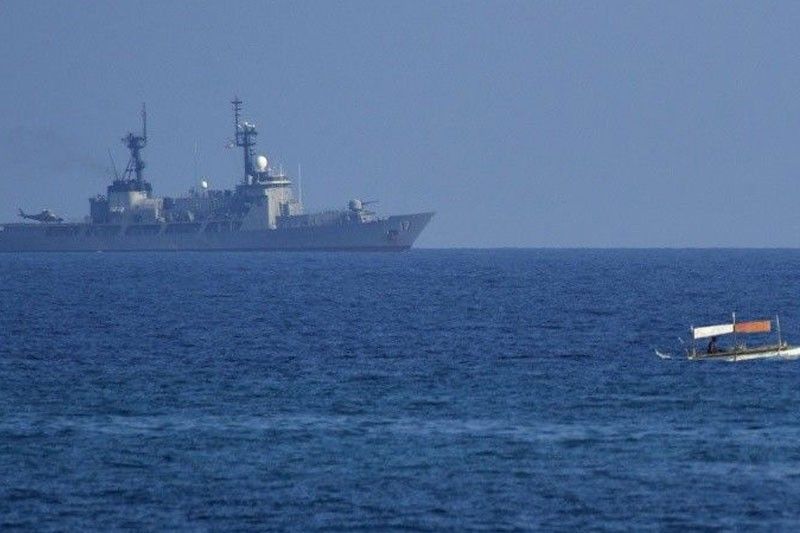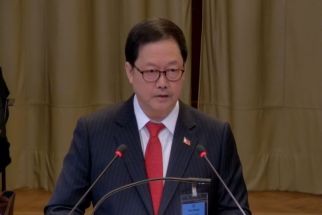Use of force, threat in WPS sabotage shared stewardship – DFA

MANILA, Philippines — The use of force and threats or acts of intimidation in the South China Sea subvert the regime of collaboration and shared stewardship, Foreign Affairs Secretary Enrique Manalo said yesterday.
At the “Dialogue on Maritime Governance in the South China Sea,” Manalo described the importance of the contested body of water for the Indo-Pacific region and the world.
He said its significance extends beyond economic benefits, encompassing long-standing cultural connections facilitated by historical maritime trade routes.
“(The South China Sea) is the maritime heartland of Southeast Asia, a critical shipping hub and a fount of precious marine biodiversity that has sustained generations of fisherfolk in the littoral states, and key to food and energy security in the region,” Manalo stressed.
The Department of Foreign Affairs (DFA) chief underscored the need for responsible stewardship and commitment to peace and dialogue, particularly in the current strategic landscape where tensions and disputes persist within the region.
“All of us must take it upon ourselves to exercise responsibility as stewards of this sea, and the life and positive connections it sustains,” he said.
“The use of force and threat of use of force, or acts of intimidation, by any party in the South China Sea subvert the regime of collaboration and shared stewardship that is key to affirming this body of water as a sea of peace, stability and prosperity,” he added.
Manalo emphasized the Philippines’ unwavering support for a rules-based maritime order, anchored in the 1982 United Nations Convention on the Law of the Sea (UNCLOS) and the 2016 Arbitral Award on the South China Sea.
He cited the Philippines’ active involvement in negotiations for the UNCLOS and the Convention on Biological Diversity, as well as ongoing diplomatic investments in the future Treaty on the High Seas and in an effective and substantive Code of Conduct.
He expressed the Philippines’ firm conviction that the rule of law ensures equity in the global commons, as well as a fair and just multilateral order.
The “Dialogue on Maritime Governance in the South China Sea,” co-organized by the Konrad-Adenauer-Stiftung Philippines and Foreign Service Institute of the Philippines, gathered distinguished scholars, experts, diplomats and other government officials to engage in thoughtful discussions on the intricate challenges of maritime governance in the South China Sea.
The two-day dialogue’s agenda covers a diverse range of subjects, including the impact of recent developments, maritime policies of Association of Southeast Asian Nations member-states, role of legislators in promoting rules-based governance and potential areas of cooperation.
“It is an understatement that how we govern the myriad of challenges in the South China Sea and resolve the disputes will have a defining influence on the future of this region,” Manalo said.
“Through this dialogue, you will all be addressing profound questions that bear on the day-to-day lives of citizens of coastal states, as well as the conundrums of diplomacy of our day and age and answer to the demands of common aspirations for a peaceful and stable region,” he said.
The Philippines protested China’s attack on Philippine vessels en route to Ayungin Shoal for a resupply mission last Aug. 5.
Ayungin Shoal is a low-tide elevation that cannot be appropriated or subjected to sovereignty claims. The final and binding July 12, 2016 Award in the South China Sea Arbitration expressly stated that Ayungin Shoal is “within the exclusive economic zone (EEZ) and continental shelf of the Philippines,” over which the Philippines has sovereign rights and jurisdiction.
Disrespect
For Cagayan de Oro City 2nd District Rep. Rufus Rodriguez, Chinese embassy Deputy Chief of Mission Zhou Zhiyong disrespected President Marcos when he claimed that the Philippines had promised to tow the grounded Navy ship BRP Sierra Madre from Ayungin Shoal in Palawan.
“(Zhou’s) insistence amounted to disrespect and an insult because President Marcos had declared days earlier that he had made no such promise and that he was scrapping any such commitment, if one was made by any of his predecessors. Mr. Zhou and his government should have just accepted the President’s declaration,” Rodriguez said.
The lawmaker has proposed to the DFA to summon Zhou “to impress upon him the President’s firm statement that no such promise has been made and that the Philippines does not intend to remove BRP Sierra Madre from Ayungin as symbol of our country’s sovereign rights over that area.”
“Ayungin is about 194 kilometers from Palawan and is clearly within our EEZ. The shoal is more than 3,000 kilometers from the nearest Chinese island. Who are they to tell us to abandon our own maritime territory?” Rodriguez asked.
He added that the Chinese diplomat even lamented at a news forum that the Philippines did not respond to China’s repeated requests for dialogue to maintain peace in the disputed area in the South China Sea.
The lawmaker maintained that “silence” is the right response on China’s supposed request for negotiation. — Sheila Crisostomo, Marc Jayson Cayabyab, Helen Flores, Cecille Suerte Felipe
- Latest
- Trending
































